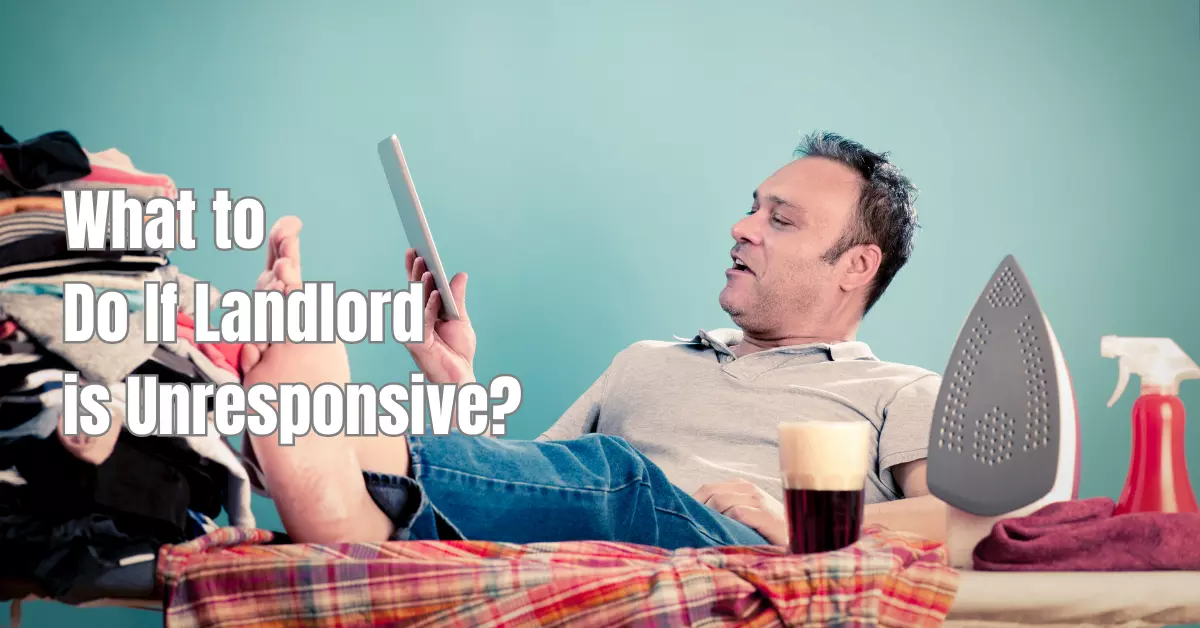What to Do If Landlord is Unresponsive? – Rental Awareness
If your landlord is unresponsive, it is important to document your attempts to contact them and notify them in writing of any issues or concerns. If the problem persists, you may need to consider legal action or contact a local housing authority.
This could be due to a variety of reasons such as a busy schedule, personal problems, or even disinterest in addressing the problems.
Whatever the reason, it is essential to take appropriate steps to protect your rights as a tenant. This article will guide you through what to do if your landlord is unresponsive.

Understanding The Problem
If you’re having difficulty contacting your landlord, it can be frustrating and worrisome. Often, it’s a sign that something is wrong – either your landlord is avoiding you or is too busy to respond to your messages.
Either way, it is crucial to take prompt action if you are not getting a response from your landlord.
What Does It Mean To Have An Unresponsive Landlord?
When you have an unresponsive landlord, it means that they are not responding to your calls, emails, or messages. This is problematic for several reasons, including the fact that you may have important questions or concerns that need to be addressed.
Moreover, an unresponsive landlord could mean that they are not fulfilling their obligations under your lease agreement. Thus, it is important to understand the signs that your landlord may be avoiding you.
Signs That Your Landlord Is Avoiding You
There are some clear signs that your landlord may be avoiding you, including:
- You have left several messages, but your landlord has not responded.
- Your landlord has failed to complete the repairs that they promised to do.
- Your landlord has started to act differently toward you.
- Your rent checks have not been cashed.
If you are experiencing any of these problems, it is important to take action quickly. An unresponsive landlord can make your living situation difficult and stressful, and it can sometimes be challenging to find a resolution on your own.

Why It’s Crucial To Take Prompt Action If Your Landlord Is Unresponsive
If your landlord is unresponsive, it is essential to take action promptly. Failing to do so could result in further problems down the line.
For example, if your landlord is not responding to repair requests, this could lead to more significant issues with your home, which could be dangerous or cost you more money in the long run.
Additionally, an unresponsive landlord could mean that they are not upholding their legal obligations under the lease, which could lead to you being unable to enforce essential lease provisions.
Thus, it is important to take prompt action if you are not getting a response from your landlord. You can start by sending a written notice of the issue, requesting a prompt response from the landlord – you should keep a copy of the notice for your records.
If your landlord still does not respond, you may need to take legal action to enforce your rights under the lease.
Steps To Take If Your Landlord Is Unresponsive
Check Your Lease Agreement
Before taking any steps, it’s vital to review your lease agreement. Check if there are specific instructions to follow in case of unresponsiveness from the landlord. Be aware of the legal obligations of both the landlord and the tenant.
Send A Written Request For Repairs Or Maintenance
Although you may have already contacted your landlord about repairs or maintenance, it’s always best to document everything in writing.
This way, you can ensure that you have a record of your requests. Be specific with your complaint and provide a reasonable deadline for the repairs or maintenance.
Sample Email/Letter Template
Dear [landlord’s name],
I hope this email finds you well. I am writing to inform you that the [repairs or maintenance needed] in my apartment have not yet been addressed. I initially brought this to your attention on [date of initial request] but have not received any updates despite follow-up attempts.
I kindly request that you address the issue as soon as possible and provide me an update on the progress within the next [reasonable deadline] days. If not addressed, i may need to seek legal assistance.
Thank you for your prompt attention to this matter.
Sincerely,
[Your Name]
Reach Out To Neighbors Or Other Tenants
If you have a good relationship with your neighbors or other tenants in your building, reach out to them and ask if they have had similar experiences or issues with the landlord. Document their experiences as well, as this can be helpful in future legal actions.
Importance Of Involving Your Neighbors
Involving your neighbors in addressing a problem with an unresponsive landlord can provide a more united front. If multiple tenants are experiencing the same issues, it may be more likely that the landlord will take action to address the problem.

Contact The Building’S Management Company
If the landlord is not responding, contact the building’s management company. They may be more responsive to your situation as they have a vested interest in maintaining a positive reputation for the property and preventing legal action.
What To Do If The Landlord Is Not The Property Manager
If the landlord is not the property manager, reach out to the property manager instead. Provide all documentation and evidence of the issue. Often, the property manager has more authority in making changes and can be more responsive.
Seek Help From Local Housing Advocacy Groups Or Legal Aid
If all else fails, seek help from local housing advocacy groups or legal aid clinics. These organizations can provide you with resources and legal advice on how to address problems with an unresponsive landlord.
Resources For Low-Income Renters
If you are a low-income renter, there are resources available to you, including discounted or pro bono legal services. Check with your local legal aid organization or hud-approved housing counseling agency for more information.
Remember, as a tenant, you have legal rights, and an unresponsive landlord is not just an inconvenience but also a violation of those rights. Taking these steps can help you take control of the situation and ensure that you have a safe and habitable living space.
Frequently Asked Questions Of What To Do If Landlord Is Unresponsive?
What Should I Do If My Landlord Is Unresponsive To Maintenance Requests?
If your landlord is unresponsive to maintenance requests, document the issue and follow up with written communication. If the issue persists, contact your local housing authority or consult with an attorney.
Can I Withhold Rent If My Landlord Is Unresponsive?
No, it’s not advisable to withhold rent. You could face legal consequences, and it could harm your credit score. Instead, document the issue and follow up with written communication. If the issue persists, contact your local housing authority or consult with an attorney.
How Long Should I Wait For My Landlord To Respond To My Request?
It varies depending on the nature and severity of the request. If it’s an emergency, such as a broken pipe, your landlord should respond immediately. For non-emergency requests, it’s reasonable to give your landlord at least a few days to respond.
What Can I Do If My Landlord Ignores My Complaints?
Document all complaints and the dates you made them. Follow up with written communication. If your landlord still ignores you, you may contact your local housing authority or consult with an attorney.
Conclusion
Don’t let an unresponsive landlord ruin your peace of mind. Remember, you have options. You can notify them in writing, involve local authorities, or even withhold rent in certain circumstances. Keep a paper trail, stay informed about your rights, and never hesitate to seek legal help when needed.
Reference
https://www.usa.gov/complaints